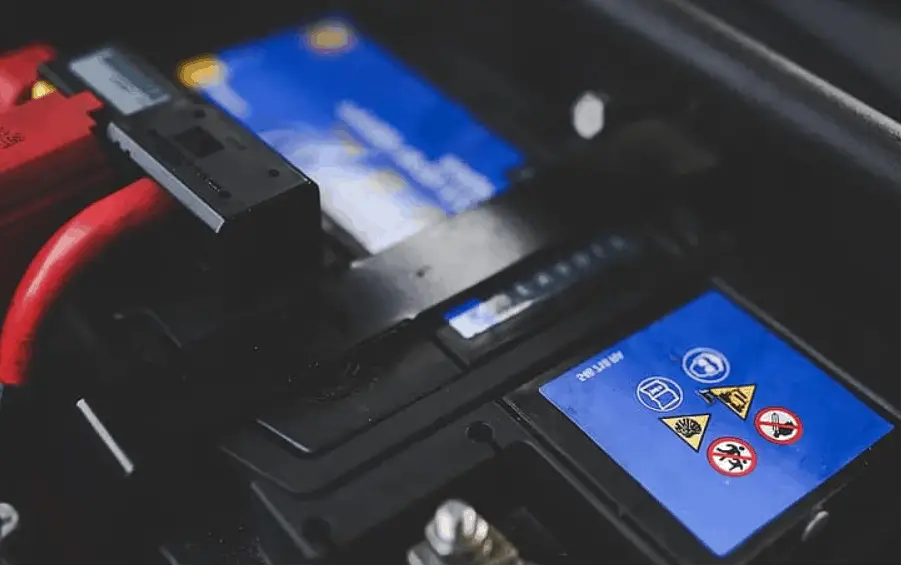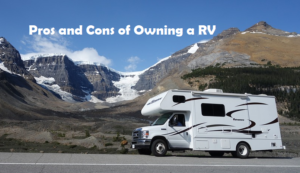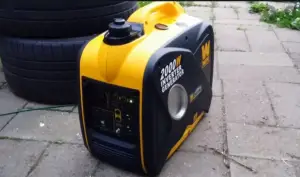Your RV battery will not last forever. And this means it will need a replacement, at some point.
Worried and want to know if your RV battery is gone bad?
Read on to learn more about the signs that your RV battery is going bad, how to test it at home, how to extend its lifespan, and how to choose the best battery for your RV.
Signs that tell RV battery is bad
If you are experiencing problems with your RV battery such as erratic performance or failure to hold charge for long, there is a high chance that it’s going bad or it’s already damaged.
And unless this issue is resolved, then your battery will continue giving you issues, thus making your life on the road unbearable. To avoid these issues, you need to check your battery as soon as possible, so that you can determine whether it’s the cause of the power problems in your RV.
You can easily determine this by inspecting your RV battery. So, what signs tell you the battery is going bad or it’s already damaged?
You can verify if the flooded battery is bad by verifying for a physical damage but same cannot be done for sealed AGM or gel battery. Measuring Voltage is the best solution for such batteries. To verify, you can perform load testing on a fully charged battery; if the voltage drops down fast within around 30 seconds or goes down to 0 V then be sure the battery is going bad.
Here are some things to verify it visually:
- Bump or bulge in the case
- Broken terminals
- Ruptured or cracked plastic casing
- Discoloration
- Excessive leaking
If the terminals are loose or broken, then you are putting yourself in grave danger using the battery in that condition. They can lead to short-circuiting, and the battery may even explode, leading to serious injuries.
If everything else looks in good condition but your RV battery has a bulge or bump, then this is a sign of overcharging. Cracks, holes, and splits may not cause performance problems. However, it’s not safe to use the battery when it’s in that state, meaning it will be advisable to replace it.
Testing the Battery At Home
If you’ve conducted a physical inspection of your RV battery and you’ve found any damage that is causing the malfunctioning, then the issue may be coming from inside the cell.
And the only way to determine this is to conduct some tests. You can test your RV battery in two main ways – carrying out a voltage test and load testing your battery.
Voltage Test
You can test your battery’s voltage either using a voltmeter or multimeter, depending on your preferences. Regardless of the device that you use, make sure your RV battery is fully charged. Once it’s fully charged, you should then allow it to sit for at least 3 to 5 hours.
Below table shows what voltage it should read at different % levels.
| % Charge | Voltage |
|---|---|
| 100 | 12.70 V |
| 90 | 12.64 V |
| 80 | 12.46 V |
| 70 | 12.36 V |
| 60 | 12.28 V |
| 50 | 12.20 V |
| 40 | 12.12 V |
| 30 | 12.04 V |
| 20 | 11.98 V |
After this duration is over, then you can use your device to test its voltage. Your battery should read somewhere between 12.7 volts to 13.2 volts if it has retained 100% charge.
If the device reads anywhere between 0 volts, then it’s highly likely that your RV battery experienced short-circuiting. If the multimeter can’t go past 10.5V, then it’s a sign your battery is already dead, and it will need a replacement.
A battery is fully charged but the multimeter reading is 12.4V or less, then there is a high chance your battery is sulfated. A sulfated battery will also need to be replaced since it will never attain a full charge. It will also discharge faster than normal.
Here is a detailed guide on how to test and monitor a RV battery.
Load-Testing the Battery
Load testing is an equally effective method of determining the performance capabilities of your RV battery. You can either take your battery to a local automotive shop for testing or do it at home.
If you opt to do the testing at home, then you will need a digital voltmeter, just like the one you used in the voltage test.
You should then connect your voltmeter to the battery’s terminals and start your RV. If your RV battery is in perfect condition, then it should comfortably maintain a load of approximately 9.5V to 10.5V for 30 seconds. If it holds the load for a few seconds and then drops steadily, then it has an issue.
As you can see, it’s not hard to determine whether your RV battery is getting bad or it’s already there. You simply need a battery charge and a testing device such as a multimeter or digital voltmeter.
If your RV battery has shown any of the symptoms discussed above, then it’s time to replace it.
Check out how you can troubleshoot a battery that does not hold charge.
How Long Should a Battery Usually Last?
On average, your RV battery should last approximately 5 to 7 years. However, the actual duration will depend on how often you use your battery, how well you maintain it, as well as the type of battery you are using in your RV.
For instance, deep-cycle batteries may only last approximately 500 charge cycles while a lithium-ion battery may last for 5,000 charge cycles or even more.
What to Do to Make Sure Battery Lasts Long?
As noted above, your RV battery’s lifespan will depend on how you utilize it and how well you maintain it. Therefore, proper use and maintenance will help to extend your battery’s life.
Before we see different actions you should take to increase the life of a RV battery lets understand what things lead to battery failure.
Below are the major factors that lead to failure of a lead acid battery in RV.
- Sulfation
- Over charging
- Under charging
- Insufficient Maintenance
To start with, sulfating is a process that kills the battery over a period of time. When the battery is discharged, it starts to accumulate sulfate on the plates but when you recharge the battery, the sulfate is converted back into plates.
This is a normal process but if the battery remains discharged for a longer duration the sulfate conversion back into the plates becomes hard and that may result in damaging the battery. Such a battery can no longer be charged fully and then it leads to battery failure.
When the battery discharges, you also need to charge it to full. Undercharging will ultimately lead to sulfation over a period of time.
Next is overcharging. This is however prevented by most modern converters that prevent overcharging. But, on older batteries, overcharging the battery can result in boiling of the electrolyte leading to battery failure.
Parasitic loads on battery can result in discharging over a period of time. This are loads that can go unnoticed but the battery will continue to loose its charge. This normally happens when the RV is in storage for a longer period of time.
Things like CO detectors, TV, antennas can absorb power even when not in fully functional mode. Therefore, its always better to unplug the battery and store separately. Modern battery systems come with switch that completely disconnects it from the appliances.
Another thing is self discharging. Even when the battery is fully disconnected, it will still loose some charge. It can be as high as 10% per month and therefore, its always advisable to check the battery and recharge if needed specially during storage.
Here are some tips that will help your RV battery to last long.
✔️ Undertake Routine Care and Maintenance
Recharging your RV battery as soon as possible and undertaking routine maintenance will help to extend its life. If possible, don’t allow your RV battery to remain below 12V. Allowing your battery to remain discharged for extended periods may lead to sulfation, which will eventually ruin it permanently.
✔️ Avoid Exposure to Extreme Weather Conditions
Extremely high temperatures, as well as below-freezing temperatures, can ruin your battery and shorten its lifespan. For instance, extremely high temperatures may reduce your battery’s capacity by approximately 50%. In short, it will make your battery work harder, thus killing it eventually.
Excessive temperatures may also cause your battery to bulge or even blow up. Freezing temperatures, on the other hand, will drain your batteries faster, thus reducing their charge cycles.
Some lithium-ion batteries may even stop charging when exposed to extremely cold temperatures. So, you should always ensure your battery is placed somewhere away from excessive heat and cold.
✔️ Unplug the Parasitic Loads
Devices such as clocks, TV antenna power boosters, appliance circuit boards and LP gas leak detectors, will cause your RV battery to discharge over time.
And the faster they drain your RV battery, the sooner you will have to recharge it, thus reducing its charge cycles over time. Therefore, make sure you unplug all the non-vital appliances and systems whenever you are not using your RV.
✔️ Opt for a Portable Refrigerator
On average, an 8-cubic feet refrigerator will consume approximately 600 watts when it’s left running for the whole day. And as you can see, this is quite a considerable amount of power.
To minimize this power consumption, you can instead opt for a portable generator. Portable generators come equipped with inbuilt batteries, meaning it will not be relying on your RV battery. Using such type of refrigerator will significantly help to extend your RV battery’s life.
✔️ Charge Smaller Devices via Chassis Batteries
It’s advisable to charge smaller devices such as tablets, watches, cellphones, compatible laptops and cameras via the 12-volt USB ports powered by the chassis batteries – instead of turning on the inverter.
As you probably know, the inverter will first have to power itself, convert the battery’s power from DC to AC, and then run this power to all the outlets in the RV. And this will be a considerable amount of power drain on your RV battery.
Considering their power drain from the chassis batteries will be negligible, then there is no point in turning on the big inverter.
✔️ Use a Generator Temporarily For Heavy Consumers
If you regularly use electric frying pans, a microwave or a griddle, then you should consider powering them via the generator instead of the RV battery.
Even if you use them for half an hour or so, these appliances will drain your RV battery fast. So, if you will be on the road for several months, then you should consider bringing along a generator, which you can use to power these heavy consumers.
What battery is best for RV
There are several types of RV batteries on the market. And each battery comes with its pros and cons. With that said, deep-cycle batteries and lithium batteries are the two most popular RV batteries. Let’s take a closer look at each type of battery:
Deep-cycle Batteries
A deep-cycle battery is basically a lead-acid battery type. It’s similar to the one you will find in golf carts and boats. It operates just like a car battery. But unlike a car battery, a deep-cycle battery will produce a steady amount of power over a longer period.
Car batteries, on the other hand, produce a lot of power over a short period. Deep cycle batteries are available in different types such as absorbed glass mat or AGM, flooded wet-cell batteries as well as gel-type batteries. They are also available in different sizes, with the larger ones producing more power than the smaller ones.
Lithium-ion Batteries
Phones, laptops, tablets and other battery-powered portable devices, normally use lithium-ion batteries. Lithium-ion batteries are newer, lighter, smaller and more compact than lead-acid deep-cycle batteries.
Furthermore, their maintenance needs are lower, compared to lead-acid batteries. Also, lithium-ion batteries can completely discharge, without damaging the cells. But as you may expect, lithium-ion RV batteries are more expensive than deep-cycle RV batteries.
What type of battery is best for RV will depend will depend on your power consumption needs, your budget and personal preferences. For instance, if you are on a tight budget, then a deep-cycle battery will be ideal for your situation. On the other hand, if you have some dollars to spare, then you should opt for big, lithium-ion battery.
Final Thoughts
Your RV battery is a vital component in your motorhome or travel trailer internal setup. It will power all the electrical appliances in your RV, thus making your coach more comfortable. So, you need to ensure that your RV battery is in perfect working condition, at all times. And once it starts malfunctioning, then it’s time to replace and recycle it.





